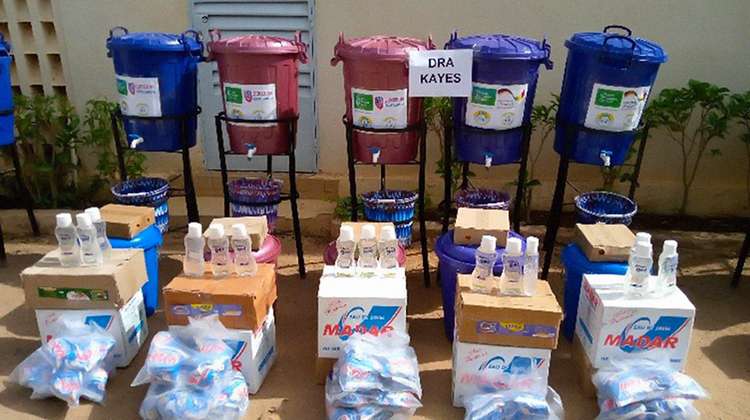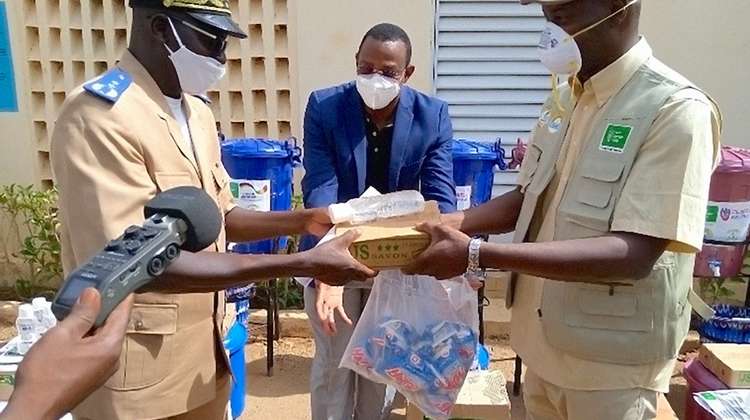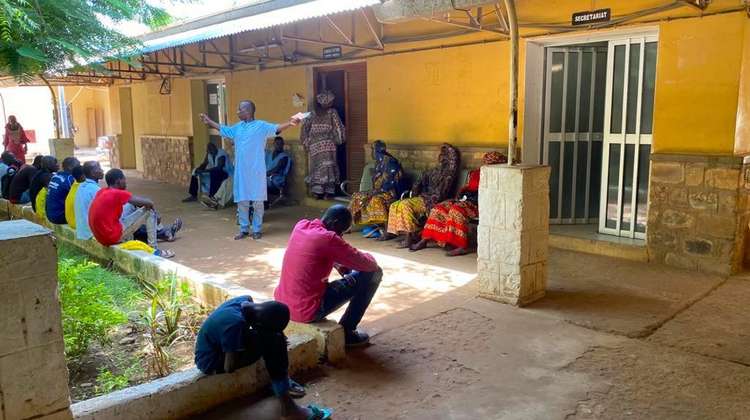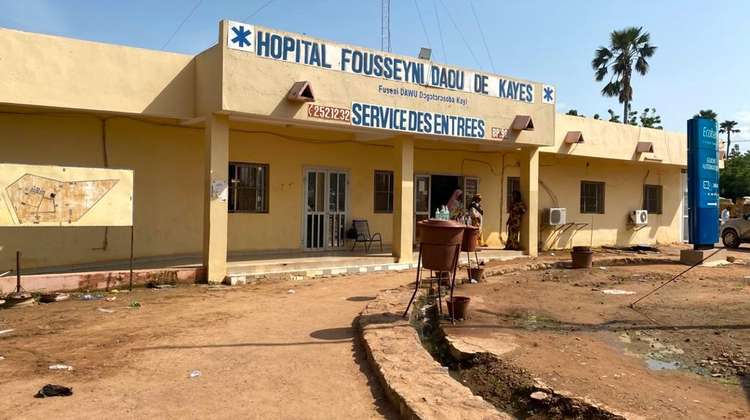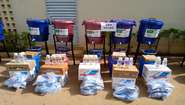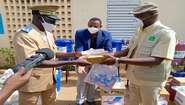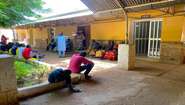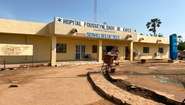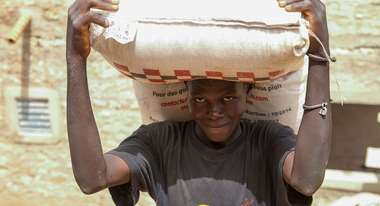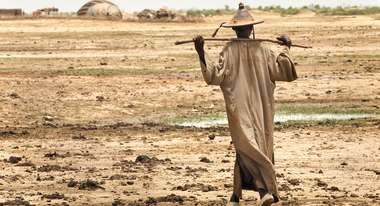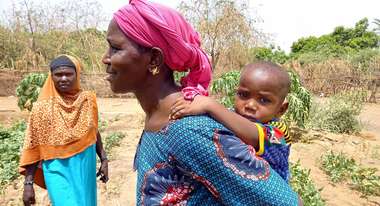Tackling COVID-19 in the Kayes Region of Mali
Welthungerhilfe and project partner, People in Need, are bolstering Mali’s healthcare response to the pandemic.

The COVID-19 pandemic reached Mali in March 2020, exacerbating an already precarious situation caused by internal armed conflicts and climate change. With one-third of the country (6.8 million people) currently in need of humanitarian aid, and more than 287,000 people newly displaced, the pandemic poses a major challenge to Mali’s fragile healthcare system.
In Mali, the pandemic has affected healthcare access, along with food security in rural areas due to dramatically reduced access to markets. Welthungerhilfe (WHH) and its Alliance2015 partner People in Need (PIN), along with two national non-governmental organisations partners ADR and Stop Sahel, immediately reallocated funds from within the ongoing Czech and German governments resilience programme, to support a community-based response to the pandemic.
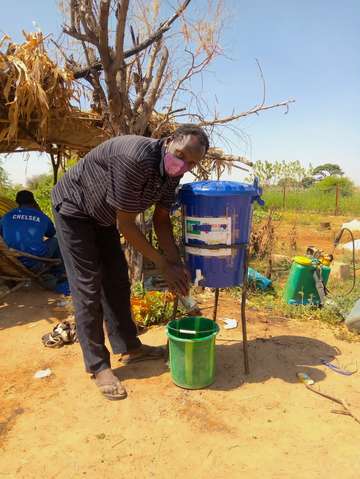
COVID-19 prevention and awareness raising
Richard Walker, PIN’s Regional Director for Africa, explains, “We distributed hand washing kits, soap, masks, and bleach or hydroalcoholic gels to communities, and raised awareness through trainings and printed materials, at the same time we were developing and negotiating the health system response”.
Diégui Dembélé, 55, lives in Diongaga village in the Kayes Region of Mali. Diongaga is made up of approximately 1,000 families and includes more than 7,000 inhabitants. The project has been building resilience in the village by creating a market garden. Vulnerable vegetable producers are receiving seeds for plants, along with hand tools. Dembélé is a market gardener and president of a local association of young farmers. “We received hygiene kits, soap, bleach, masks, and leaflets. This equipment really helped us protect ourselves against the COVID-19 pandemic,” he notes.
At the same time, awareness sessions were being conducted. “The sessions focused on respect for social distancing, frequent hand washing with soap, permanent wearing of masks, and other topics,” says Dembélé.
Walker says, “Both the Czech and German governments have continued to show their commitment to supporting Mali in responding to health and hygiene issues along with water, food security and livelihood challenges for which we are very grateful”.
Support for the Kayes Region’s health system
The Ministry of Foreign Affairs of the Czech Republic has also made available additional funds to support the strengthening of the health system in the region. WHH, PIN, along with the Mali Ministry of Health, with support from the Czech Embassy in Mali, designed the project to quickly supply medical material and equipment to the main hospital and to ensure the protection of the front-line medical staff combating the epidemic.
Due to the large number of travellers that pass through the region, the current poor security situation, ill-equipped health facilities, and lack of diagnosing laboratories in the region, the risk of the spread of COVID-19 remains high.
Kayes city is home to the regional state hospital, which is the area’s only approved site for COVID-19 treatment. "As the health structures are not well equipped to receive ill people, the Kayes regional health system urgently needed diagnostic, treatment, and other medical equipment to ensure that case identification and management is effective, along with a strengthened capacity for health promotion and community sensitisation," says Walker.
According to director of Kayes regional hospital, the hospital, which is serving the population of almost three million, was not equipped with enough basic equipment for intensive care. This is not only a serious complication during a COVID-19 outbreak but for other endemic infectious diseases and respiratory infections too. All serious cases were being transferred from rural areas of Kayes region to the central hospital – often hours away – and then further referred to the capital city Bamako, which involves a further 10-15 hours of complicated transport by ambulance.
As part of the health system response, WHH and PIN supplied medical machinery and consumables along with personal protective equipment to the regional hospital in Kayes, which will also support the four district health centres. "With all the equipment now delivered, we are continuing communication activities in order to sensitise the rural populations and encourage early presentation of potential cases to the medical facilities," concludes Walker.
Healthcare and WASH
As the previous activities of the joint resilience project focused on development of the irrigation infrastructure in the region, the project’s activities were adapted and the donors agreed to support Water, Sanitation and Hygiene in the local health facilities, which were exposed to COVID-19 and faced problems with infrastructure. This was also the case for the Diema district CSRF (Referral Health Centre), which lacked steady access to water. WHH and PIN worked together to renovate a borehole and water system to assist the population of roughly 250,000 people.
Another version of this article first appeared on the website of People in Need, an Alliance2015 partner organisation of Welthungerhilfe. It was written by Petr Stefan, PIN Communication Officer.





